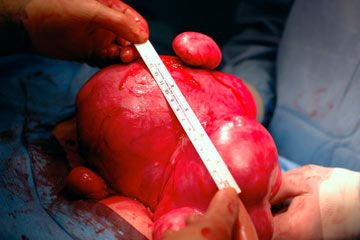Our bodies' reproductive systems are complicated, controlled by an interconnected web of physiological processes. Here, we're going to look specifically at the follicle-stimulating hormone (FSH), what it does and how the amount your body produces can affect your fertility.
FSH is a hormone produced by the pituitary gland, a small, pea-sized organ that's part of the body's endocrine system. While it may be small, its job is anything but -- it's the gland that's in charge of the other glands in the endocrine system.
Advertisement
The pituitary gland is comprised of three lobes: anterior, intermediate and posterior. Each of these lobes is in charge of producing specific hormones. The posterior lobe, for instance, produces an antidiuretic hormone to help our kidneys absorb water. It also produces oxytocin, a powerful bonding hormone (sometimes called the love hormone) that's released during sexual arousal, childbirth and breast-feeding. The intermediate lobe produces a hormone that manages our skin's pigmentation.
However, it's what the anterior lobe does that we're interested in now. This lobe produces several hormones, including growth hormone and others that stimulate the thyroid and adrenal glands. It also produces two hormones that stimulate the ovaries in females and testes in males: LH (luteinizing hormone), the hormone that stimulates the ovaries to ovulate, and FSH.
In men, the body uses FSH to stimulate testicular growth and sperm maturation. In women, FSH stimulates the ovaries, encouraging them to develop follicles -- hence the name follicle-stimulating hormone. Stimulating an ovary's follicles basically means that, while a combination of hormones is at play throughout a woman's monthly cycle, it's FSH that fires up the development of a mature egg (or eggs) every cycle.
FSH levels fluctuate daily within a woman's cycle, as well as from cycle to cycle. Low levels of FSH indicate a woman's eggs are plentiful and of good quality, while high levels may indicate that the woman's fertility is impaired. This doesn't mean that she's unable to get pregnant and have a healthy pregnancy, but that getting pregnant and having a good pregnancy outcome may be more difficult than for a woman the same age with an average FSH level.
Next up, let's find out what normal FSH levels look like, what may cause those levels to rise, and how, if possible, to lower them.
Advertisement


